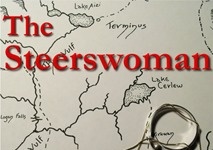Science fiction author and self-proclaimed geek fan Daniel Haight has made a post that calls into question the behavior of the sci-fi fan community – and the continuation of the genre. Entitled, “How Sci-Fi is Failing Fans (and How We Can Get it Back)”, the post states that: ” The science fiction of 2013 is not what I grew up with and I’m hoping we can turn that around in 2014. Science fiction is our mutual heritage of imagination and storytelling and it is threatened by some very destructive behaviors.”

And although Haight bemoans some ebbing support from the media for quality sci-fi, it’s the behavior within the community itself that he deplores. “Where science fiction was once an open area for discussion about technology, humanity and progress, it’s now become a strange circus of bad behavior,” he complains. “I see competition where I should see cooperation. I see misogyny, sexism and racism. I see trolls driving people away from participating in the universes of our imagination. I feel like a stranger in a strange land when I look at what science fiction has become.”
And almost needless to say, the bad behavior and bad outcomes he instances include molestation at fan conventions, the domination of sci-fi franchises by toys, the pressure of Hollywood that distorts or ruins same franchises (“The Last Airbender happened, people. It happened, and we let it happen.”), and the one-upmanship within fan communities (“every geek has a story about the Internet beatdown they they received when they first joined online community of their favorite show or movie”) – among others. Interestingly, he doesn’t mention the sexist rants by senior sci-fi citizens, but I assume this is more because he is interested in the behavior of the fan community than the authors themselves.
Haight does at least produce a list of what he believes are remedies that could not only restore the health of the fan community but also make it a better place for many people, especially women, to move in. “I’m proposing that we create that community of thoughtfully committed citizens,” Haight proposes, instancing Reddit as one possible platform. “We can start encouraging the good things we like about science fiction and speak up about what needs to change.”
May it be so. But I’ve a number of concerns about this whole balance of problems and solutions. For one thing, what kind of science fiction are we talking about? Does Hollywood fall over itself to create franchises based on Frederik Pohl novels, for instance? Is there big business in toys based on Margaret Atwood’s The Handmaid’s Tale? Or William Burroughs’s transgressive monsters? Are fan communities beating up on novices who fail to demo knowledge of every piece of trivia about J.G. Ballard’s oeuvre? Is cosplay adult behavior? Or collecting plastic toys designed for 8-year-olds?
I hope you get the point, which is a point about large chunks of sci-fi per se. There are always going to be problems around a genre that has a tendency to be more interested in things than people, especially Cool Stuff and Gosh-Wow Ideas. A regrettably huge slice of this genre is built on adolescent premises, promotes adolescent behavior, and markets products tailored to appeal to that. And are we surprised when that same adolescent behavior shows less pleasant aspects once out of the Lego Star Wars collectibles community? If you’re inhabiting that subsection of the genre, and want to stay there, you are going to have to pay that price. Or grow up and move on.


































I’ll probably read the d-mned article, but from what you said here, it seems that he isn’t very interested in the *books.* If he’s upset about what science fiction “has become,” it’s because he’s probably one of those adolescents he complains about, emotionally if not factually. “The science fiction of 2013 is not what I grew up with and I’m hoping we can turn that around in 2014.” Say what? Science fiction is just like anything else; it keeps changing. I don’t know what he grew up with, but some of the “classics” from the early, so-called Golden period, are practically unreadable. Today’s stories are better written, less dependent on aliens and gee-whiz technologies. When it comes right dow to it, science fiction isn’t about toys, community, or franchises. It’s about books. Maybe he ought to skip a few conventions and sit down with a good book.
I’m not sure what the author’s beef is. I like reading science fiction novels and short stories, but I’m probably not a “fan” of the genre. I have pretty much given up on watch modern science fiction movies or TV shows.
But the author talks a lot about movies and TV. IMHO, if science fiction is a failing genre, it’s failing because too many authors are trying to make written work be more like the movies or TV. It’s all about spectacle and action now.
Where are the modern authors like Stanislaw Lem who could write with a profound sense of philosophy or what technology is. Stories about Billy Bob the Starship captain kicking butt against badass aliens don’t have the gravitas of a scientist exploring the nature of intelligence and language with aliens who have nothing in common with humans – no prosthetic ears, noses, of foreheads for ET.
If I ever met the author, I doubt we’d agree about what makes good science fiction.
>>There are always going to be problems around a genre that has a tendency to be more interested in things than people, especially Cool Stuff and Gosh-Wow Ideas. A regrettably huge slice of this genre is built on adolescent premises, promotes adolescent behavior, and markets products tailored to appeal to that. And are we surprised when that same adolescent behavior shows less pleasant aspects once out of the Lego Star Wars collectibles community? If you’re inhabiting that subsection of the genre, and want to stay there, you are going to have to pay that price. Or grow up and move on.>>
Snide and condescending comments.
I really expected better of Teleread and its contributors.
Sci-fi has its fair share of trollish and boorish behavior — it also far from the only subculture with a large, dedicated fandom that has these issues.
Sci-fi, fantasy and speculative fiction as a whole also has some incredibly thoughtful and articulate and inclusive fandom at all levels, from the “toy franchises” to the “deep ideas” literature.
The wonderful thing about speculative fiction is that it is such a big tent that there is room for an endless variety of storytelling and fandom participation.
To dismiss the genre as childish in the way the author has done so completely undermines any credibility on the subject.
— Bill Smith
http://www.BillSmithBooks.com
Wait… so… in order to “save” science fiction and be a true serious fan of the genre, I have to “grow up” and get rid of my collection of LEGO Star Wars sets?
Does that mean I can keep all the rest? (LEGO Star Wars makes up less than 5% of my modest LEGO collection… )
Can I keep my collection of “Urban Fantasy” (Charles de Lint, etc.) and still be a Serious Science Fiction Fan [Patent Pending]? Or do I have to burn/toss those?
And can I keep all my James H. Schmitz books and still be a “True Fan”? That’s mostly from the 60’s so it must be “real” science fiction even though it’s mostly character driven and not like that stodgy old science heavy stuff that Asimov wrote about robots?
Do I need the /sarcasm tag?
Funny, I don’t hear anyone complaining that the behavior of gamers is destroying the gaming industry, or that the behavior of sports fans is destroying sports. In any community (or meta-community… does anyone think the speculative fiction fandom is somehow monolithic?) there are a few bad apples who get noticed and give outsiders the impression that everyone else in there is like that. We should all know better by now, but I guess it’s easier to point fingers. Meh. Much ado about nothing… again.
Actually the Real problem I see with Sci-Fi/Genre fiction is hypocrisy.
I see groups pointing the finger at others in a PC Fueled Censorship bandwagon to satisfy a holier than though attitude(but without even a religion to blame it on)
I see Racists calling people Racists, I see intolerance from people who preach tolerance. I see a lot of people who think they are better then others but are to cowardly to put it in such words.
I am in many ways a Misanthrope(and I did not get there alone people)
I see people pretending to be the seeds of a budding Utopia and I see the Dystopia that inevitably proceeds it.
The only faith I have is in following Dr. Kings advice and treating everyone I meet as a Individual. Now Political Groups(and that includes every race and gender) I basically loathe every one of them.
Believe me, If you want to see the ugliness of Humanity, Just look a little more deeply at anyone around you, or you can simply look In the Mirror.
To be fair, the article referred to is largely about films and TV. I read a lot of sci-fi and love the stuff that makes me think or see the world in a new light, but this sort of tale more often than not doesn’t translate well to screen. Besides, fandom around TV and movie science-fiction seems to me quite different to that of the literature, with a tendency towards tribalism (for want of a better word). I think the problem is that the genre is often poorly understood by those in the media who are in a position to promote what’s good, thus leaving it to fans to defend sci-fi from its detractors.
Science fiction has, since its development as an independent genre in the 1920s and 30s, always been a niche genre. And I suspect it will remain a niche genre long after I am gone. On Television and in movies it has recently become fashionable, but I am sure sooner or later it will drop off the radar again. Fortunately there will still be authors writing it.